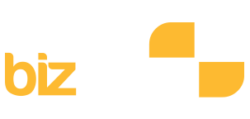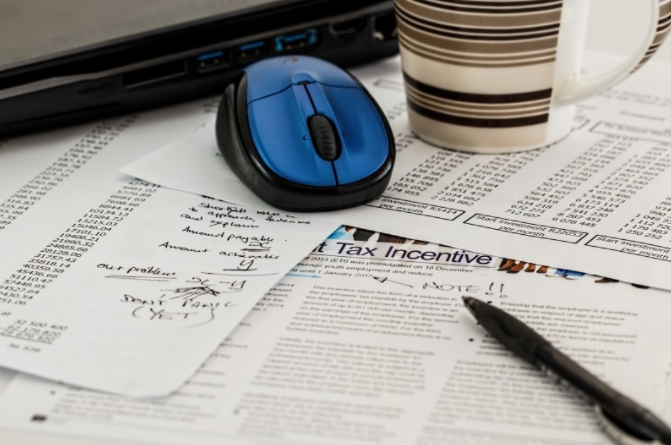The Reckon Team share some advice for making sure your records are tax-time ready. ~ WizeOwl
Sharpen your pencils and try to contain your excitement – 2017 tax time is here.
If you’re already up to your assets in it, keep in mind that late night sandwich deliveries are deductible, as are tax software programs, filing supplies and other expenses incurred while preparing your taxes – including the pencils. Keep all receipts. Deductions are helpful, but they’re only legal if you can prove them on paper.
While it’s true that late night snacks and pencils aren’t eligible for the $20,000 instant asset write-off deal, this year the deal has been extended – so if you’re after acquiring big assets, now is the time to invest. Shop ‘til your taxes drop – just make sure your purchases are compliant, that they’re in use (for business only – if they’re partially for business, they must be pro-rated appropriately) by June 30th and that you understand this is a deduction, not a credit. See the ATO website or your trusted, up-to-date tax software program for specifics and exceptions.
Below are 5 essential tax tips to get you ready for end of financial year:
1) 2017 is an even bigger year for small business
Based on a recent study by the Council of Small Business Organisations of Australia, small businesses provide half of Australia’s private sector jobs. Australia’s new budget became official on May 9 of this year. It exemplifies Australia’s commitment to supporting small business’ efforts and your contributions to Australia’s economy and its workforce. It aims to decrease small business’ tax burdens and reduce ‘red tape’ complexities. It includes, among other things, a trial run of simplified business activity statements.
It also simplifies the process of reporting GST information. Small businesses will no longer have to report separately on export sales, GST-free sales, capital purchases and non-capital purchases.
In the interest of making Australian businesses able to compete more internationally, the government is also working on a 10-year plan to reduce all corporate businesses taxes to 25%. Australia is also investing lots of dollars into improving its infrastructure, increasing the skills of Australia’s workforce and making utilities more affordable. This, too, should benefit all Australians.
2) What constitutes a small business?
The biggest change in this year’s budget is in the small business turnover threshold limit. Where it used to be $2 million, it is now $10 million. Many more businesses will be able to access small business concessions this year, including the lower business tax rate of 27.5%. This tax discount will also apply to “sole traders, partnerships and other unincorporated businesses with an annual turnover of less than $5 million.”
Other benefits to qualified businesses include credits and subsidies for government trained interns as well as the hiring of job-ready seekers and those with barriers to employment.
Note: capital gains tax concessions are still limited to a $2 million turnover and unincorporated small business tax discounts are limited to a $5 million turnover. The unincorporated small business tax discount is also being increased to 8 per cent, up to $1,000. Businesses must qualify by meeting turnover and CGT concession eligibility tests.
Also note: in an effort to prevent businesses from diverting income to make the $2 million turnover mark, the law specifies that turnover “needs to be calculated from the ‘aggregated’ amounts . . . of every ‘connected’ or ‘affiliated’ business.”
3) Other tax-time-bewares
As always, be organised, be diligent, be thorough, be legal – and be on time. Keep records of everything (the legal requirement is 5 years); don’t throw out business related receipts and do periodically update expense and account records. A compliant accounting and tax software program is highly recommended for use at tax time and throughout the year. Consider linking your business accounts to your accounting software.
Be sure to include all income (even personal, such as rent collected on personal property investments). Don’t try to claim expenses that aren’t business related – if they’re partially for business, make sure they’re properly pro-rated. For those in the courier and cleaning industries (and others who do cash business) – in the interest of a level competitive playing field and other goals listed above, cash records will be thoroughly vetted.
Be aware of regulations related to personal loans from your business. Read up on Division 7a if you have, or plan to, engage your business in a personal loan.
4) Deductions can be fun . . . as long as they’re legal
Here are a few, among many others. Use your trusted tax software to guide you: operating supplies and expenses, home office supplies and expenses, bad debts (must be written off by June 30), business travel (including non-commuting auto expenses), advertising and sponsorships (time to support your favourite local little league team), charitable contributions, pre-paid expenses (such as insurance premiums, rents and professional subscriptions), super contributions and fringe benefits, bonuses (must be reported to employees in writing by June 30), depreciable assets, equipment and office maintenance, business related education and training, union dues, freighting services, websites & domains, uniforms & protective gear. Ping Pong tables, Xboxes, pedicures and art work– yes, if they qualify.
How’s that sandwich going? Ready for pizza yet? Also tax deductible.
5) A few other really important things to know . . .
- . . . about SUPERSTREAM: It is the law. Super contributions must be paid electronically and in a single, standardized format “so it can be transmitted consistently across the super system – between employers, funds, service providers and the ATO. It’s linked to the payment by a unique payment reference number.” Super concessional contribution caps for employees under age 49 have increased from $25,000 to $30,000.
- . . . about PAYG REPORTING: STP is still optional, but recommended, for small businesses.
- . . . about FOREIGN WORKERS: Australia’s temporary work visas will herewith be limited to those who fulfill critical skills shortages. Employers will have to pay a levy that will be earmarked into its new Australian skills development fund, in the interest of training Australians in areas of needed skills.
- . . . about STOCKS: Stocks can now be valued at year-end cost, market selling value, replacement or obsolete stock value.
–
Need some help with your books? Contact Bizwize today.



